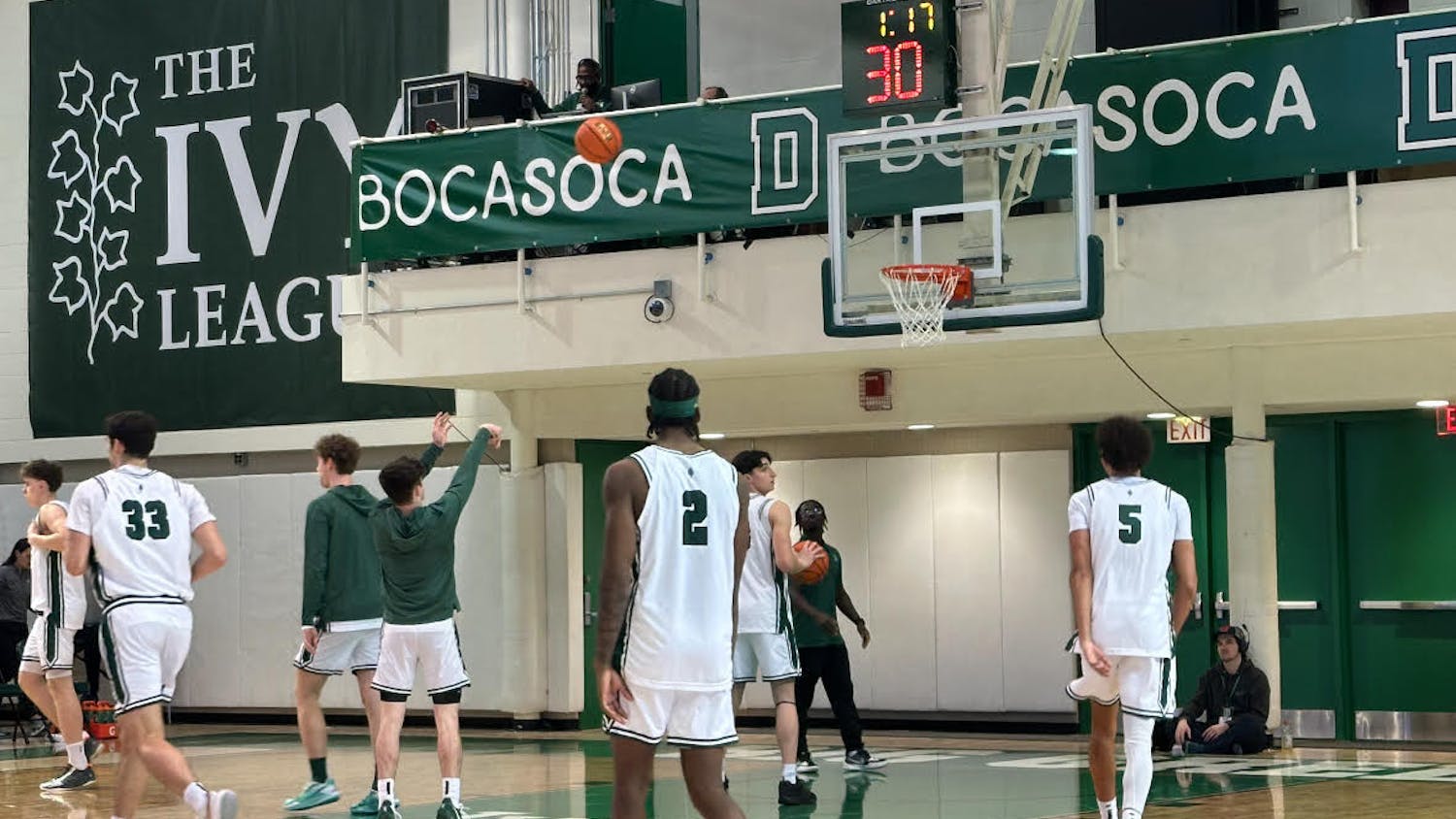Waking up in the morning is a task. I have three alarms located in different parts of my bedroom. Each one is louder and more annoying than drunken karaoke with Alvin and the Chipmunks. One even requires me to do a series of long division problems in order to turn off the buzzer. Despite this elaborate ordeal, it still takes me over 30 minutes to get out of bed in the morning.
On Thursday, like usual, my alarm buzzer started my day. But unlike the nice weather we had been having as of late, it was freezing outside. It is the first week of October and Hanover is already colder than Simon Cowell's heart.
October mornings with sub-32 degree temperatures say something about the toughness of every person who attends this College on the hill. We're a special breed, and the athletes here are no different.
Our golfers have to drive, chip and putt in Leverone Field House for most of the year because our links are unusable from November until April. Our rowers and sailors have to avoid ice chunks during early practice. My football team has to de-ice the field with pickaxes in order to start spring practice. Every team has to deal with this type of crap and no one ever complains.
Dartmouth student-athletes don't complain about the weather because we all love our sports we cherish every moment we are able to spend on our respective fields. This passion drives Dartmouth student-athletes to wake up at 6 a.m. for morning practice, stay up until 1 a.m. finishing homework and do it again the next day.
This passion is what makes collegiate sports special, and it is slowly disappearing from institutions across the country.
The recent explosion of young athletes committing NCAA violations by accepting money and other benefits from boosters has forced college presidents to consider sharing some revenues with student-athletes. Although I think that some college athletes are terribly exploited, I strongly believe that paying players is not an effective remedy.
Paying college athletes is the equivalent of giving participation trophies to kindergarteners after a soccer match. Win, lose or draw, everyone triumphs. No one learns any life lessons when poor performances are rewarded with equal compensation.
College sports are appealing because of the emotion that goes into every game. Younger athletes have more energy, and are more determined to win because winning is the only reward. Once I'm done with football, the only things I'll take away from my tenure are my jerseys, my memories and a few badass pictures of me in action.
For collegiate teams, the rush of winning is matched with the agony of defeat. After losing the Penn night game in the final seconds last Saturday, I was crushed.
I learned a lot about myself that night. I learned how to acknowledge defeat but never accept it. Our season is far from over and I learned how not to let disappointment slow me down. When you add money to the mix, these lessons disappear.
How can you be upset after losing a football game when you know your performance just earned you a million-dollar paycheck? Peyton Manning might not play a down of football this year but he will still make a cool $14.17 million before taxes.
How can one loss hurt the same way when you have a fast car, huge house and hot wife to return home to? How can you play with the same passion as a 20-year-old kid who has absolutely nothing to lose? I have seven games left in my football career and it will take a severed foot and a ruptured vertebra to keep me off the field.
I watch professional sports for the precision and athletic talent they display. I watch college sports for their unpredictability, passion and energy. The Final Four is exciting because you never know which underdog will rise through the ranks on a given year. The Bowl Championship Series is exciting because one loss is the difference between the Rose Bowl and the PapaJohns.com Bowl. I watch college sports to see how hard-working teams that have great chemistry, like the 2010 Dartmouth baseball team, can play competitively against powerhouses like the University of Miami.
I love college sports, and paying players would corrupt the experience they offer.



